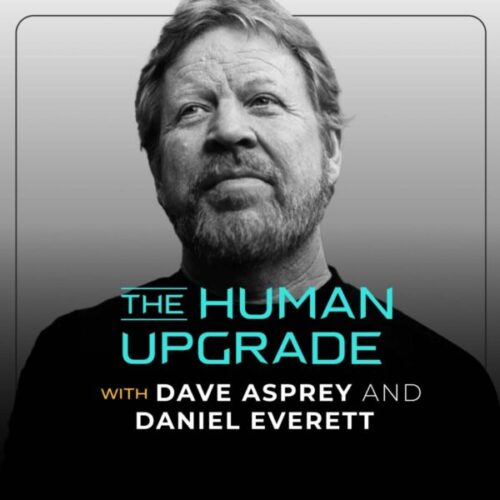How Learning a New Language Rewires Your Brain – A Podcast

How Learning a New Language Rewires Your Brain – A Podcast
Does the language you speak determine how you think and process the world around you?
Does learning a new language actually rewire your brain?
With those questions in mind, you need to listening to this episode of the The Human Upgrade podcast – “How Learning a New Language Rewires Your Brain—Lessons from the Pirahã Tribe” with Daniel Everett.
–> Link to the transcipt: HERE
I wanted to share this episode with you, because I found it fascinating – and I hope you do too!
In the episode, linguist Daniel Everett explores the connections between language, cognition, and perception and he also discusses how learning a new language can fundamentally rewire the brain.
He shares insights from his extensive work with the Pirahã people of the Amazon. He even talks about the unique characteristics of the Pirahã language, such as: the absence of numbers.
He challenges conventional theories of language and cognition. He explains how these linguistic features influence the Pirahã’s perception of reality, memory, and navigation, Daniel Everett also suggests that language profoundly shapes human thought processes.
A Breakdown of the Episode:
The Unique Pirahã Language and Culture
- The Pirahã language is radically different from most others; it lacks numbers, specific verb tenses, and recursion (the ability to embed clauses within clauses).
- Their language is deeply tied to their culture, emphasizing experience over abstract concepts like history or mythology.
- In other words, Pirahã culture values real-world experience, influencing their language and limiting abstract storytelling or historical records.
- Everett demonstrates how language shapes thought through the Pirahã’s absence of numbers. He shows how that causes the Pirahã to perceive and interact with their environment differently than languages with numbers.
How Language Rewires (and Helps) the Brain
- Learning a new language changes neural pathways, enhances cognitive flexibility and problem-solving skills – and even memory.
- The structure of a language affects how speakers process reality—Everett explains how Pirahã speakers’ perception of time and space differs from those who speak languages with more complex grammatical structures.
- Mulitlingualism can delay cognitive decline.
Implications for Consciousness and Identity
- He explores the idea that language is not just a tool for communication but rather a core part of how humans think and perceive the world.
- Everett discusses how different languages encode different worldviews, affecting personal identity and decision-making.
- He also questions AI and whether AI can ever truly “think” in language the way humans do, as human cognition is shaped by lived (real-world) experience and culture.
Takeaways:
- Language Shapes Thought:
- The structure of a language influences how its speakers perceive reality, affecting concepts like time, numbers, and abstract reasoning.
- Furthermore, each language encodes a different worldview, shaping the way people interpret events and make decisions.
- Language also influences perception of time. For example, some languages, like the Pirahã’s, lack words for future events, reinforcing a present-focused mindset.
- Neuroplasticity and Language Learning
- Learning / acquiring a new language rewires the brain, improving cognitive flexibility, memory, and problem-solving skills.
- Learning / acquiring a different language can reshapes thought patterns, self-perception and foster creativity.
- Multilingualism Delays Cognitive Decline
- Studies show that speaking multiple languages can help slow the onset of dementia and improve overall brain health.
- AI and Language Limitations
- Artificial intelligence may process language, but without human (real-world) experiences, it cannot truly “think” in the way humans do.
Overall, the episode provides fascinating insights into the relationships between language, thought, and brain function.
I hope you enjoy it as much I do! Please share your thoughts in the comment section below!